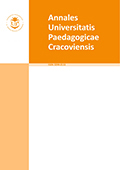Beyond the Political – an Ethical Reading of J.M. Coetzee’s Foe
Beyond the Political – an Ethical Reading of J.M. Coetzee’s Foe
Author(s): Urszula GołębiowskaSubject(s): Studies of Literature
Published by: Wydawnictwo Uniwersytetu Komisji Edukacji Narodowej w Krakowie
Keywords: intertextuality; postcolonial theory; feminism; ethics
Summary/Abstract: The present discussion of John Maxwell Coetzee’s 1986 novel Foe, which explicitly alludes to Daniel Defoe’s well-known novel Robinson Crusoe, focuses on Coetzee’s specific rewriting of the intertext. The elements retained, altered and introduced suggest theoretical perspectives which may be employed to determine the significance of the transformations. While Foe has been often investigated from the perspectives informed by feminist and postcolonial discourses, the aim of this article is to address crucial aspects of the text left unexplored by these readings. Indisputably, Coetzee’s construction of the character of Cruso invokes postcolonial theory, as this contented castaway undermines the myth of empire and the entire colonialist enterprise promoted in Defoe’s canonical text. In turn, the introduction of a female narrator and author, Susan Barton, explicitly questions the absence of women in Robinson Crusoe as well as eighteenth-century sexual politics. However, Coetzee’s transformation of Defoe’s Friday into the mute slave in Foe defies a facile explanation and has been seen as promoting rather than countering the silencing of the subaltern. Adopting an ethical perspective allows to view Friday’s lack of voice as a consequence of Barton’s refusal (mirroring Coetzee’s) to speak for him. Ethics emerges as the only force capable of restraining the self’s drive for power over the other inherent in acts of voice appropriation.
Journal: Studia Anglica
- Issue Year: 222/2016
- Issue No: 6
- Page Range: 104-113
- Page Count: 10
- Language: English

